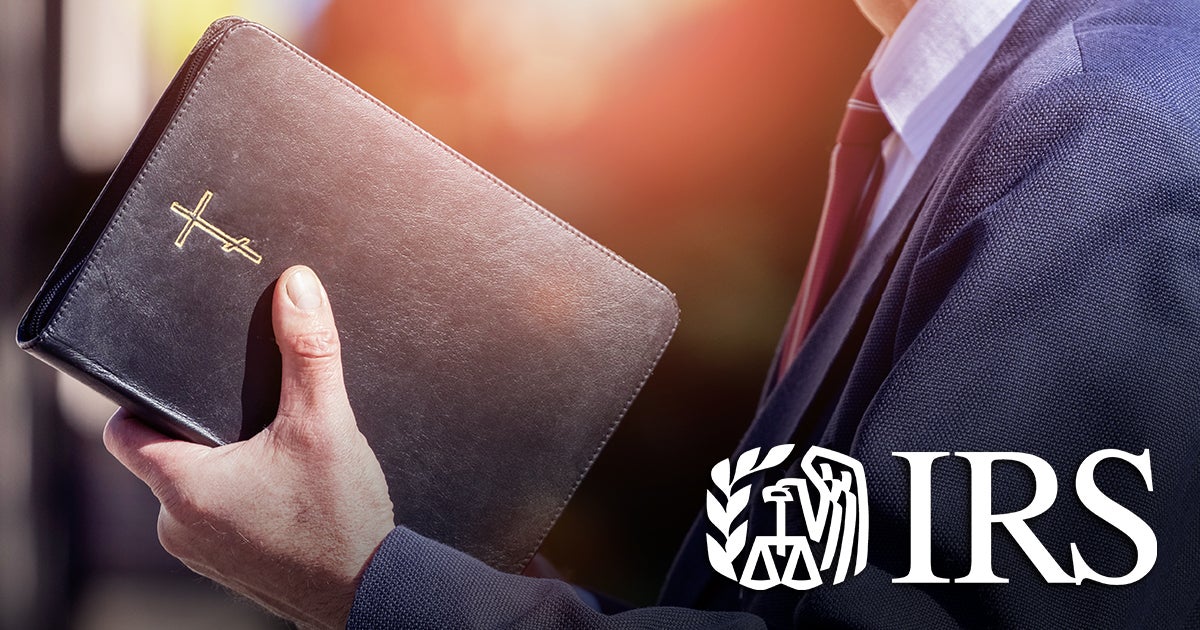
by Jorge Gomez • 4 minutes
A bill introduced in Congress could help protect religious leaders and stop the IRS from punishing them if they express their opinion on pollical candidates.
Rep. Mark Harris of North Carolina and Sen. James Lankford of Oklahoma recently introduced the Free Speech Fairness Act, legislation that would repeal the troubling Johnson Amendment. That provision in the tax code says pastors, churches and nonprofits cannot endorse or oppose political candidates as a condition for retaining a tax-exempt status.
“The Johnson Amendment violates this nation’s historic respect for the independence of its houses of worship by inviting the IRS to investigate and intimidate churches for being civically engaged,” said Jeremy Dys, Senior Counsel and Chair of the Religious Institutions Practice Group at First Liberty. “The Free Speech Fairness Act goes a long way to restoring this nation’s commitment to protecting our houses of worship and the religious liberty of its leaders.”
The Johnson Amendment was enacted in 1954 to prevent charitable organizations from “intervening” in political campaign. Then-Senator Lyndon B. Johnson led the effort, and it’s worth pointing out that two Texas nonprofits had actively campaigned against him.
Over time, the language of this provision has been manipulated to bar ministers and nonprofit leaders from making any kind of political statements at their organizations’ functions or in their publications. The rule has also been vaguely and inconsistently applied by the IRS, resulting in a chilling effect. Across the country, religious leaders, houses of worship and faith-based organizations operate under the threat of losing their tax-exempt status if they simply speak for or against any political candidate.
The question to consider is not whether churches and pastors ought to talk about candidates – that’s up to each congregation to decide. The important question is whether the government can place limits on what can be said from the pulpit.
“People of faith should not fear exercising their First Amendment rights at the risk of the IRS coming after them,” said Rep. Harris. “This attempt to muzzle people of faith must end—the Constitution is clear: Americans’ right to free speech shall not be infringed.”
Churches and pastors should not live under the threat of the IRS.
The Johnson Amendment has silenced pastors and churches for far too long – we must restore free speech to the pulpit! pic.twitter.com/4E9USeZVjP
— Rep. Mark Harris (@RepMarkHarrisNC) April 1, 2025
“The Free Speech Fairness Act is needed to ensure these original free speech protections are upheld by removing a restriction on speech that has existed since 1954,” Sen. Lankford added. “Fundamental American values must extend to everyone, including pastors, social workers, or non-profit employees and volunteers.”
In the House, the bill already has 14 co-sponsors. Alongside First Liberty, more than a dozen organizations expressed support for the legislation, including:
Section 501(c)(3) of the U.S. tax code states that tax-exempt groups “are absolutely prohibited from directly or indirectly participating in, or intervening in, any political campaign on behalf of (or in opposition to) any candidate for elective public office.”
The proposal would change that by allowing such organizations “to make statements relating to political campaign in ordinary course of carrying out its tax-exempt purpose.”
Charitable groups would be given the freedom to comment on political campaigns as part of their regular activities as long as they don’t incur significant costs doing so. This means a pastor can mention a candidate during a sermon, or the leader of a religious organization can either criticize or express support for a politician’s stance in an email, newsletter or social media post to supporters.
Rep. Harris clarified that the legislation would not allow churches or nonprofits to become political action committees.
”We’re not looking for churches to become super PACS, that is certainly not the purpose of this,” he told The Daily Wire. “But it is to really restore free speech to the pulpits of America without any threat of our tax code.”
Scholars and legal experts have argued that the Johnson Amendment raises serious constitutional concerns. It violates the Free Exercise and Establishment Clauses of the First Amendment. It runs counter to the freedom of speech. A third concern is whether the government is attaching “an unconstitutional condition on a federal benefit,” namely tax-exempt status.
The Free Speech Fairness Act is about removing that punitive provision. If signed into law, churches and nonprofits wouldn’t have to constantly fear losing their tax benefit or being investigated by the IRS just because they convey their convictions about a candidate.
The legislation would help our country return to a more historically accurate understanding regarding churches and political activity. The Founders saw religion as a necessary component to a healthy, moral society—not a taboo topic to bar completely from the political realm.
Sermons on politics, government and controversial issues were common during the founding era, and popular among pastors and churches on varying sides of the political spectrum.
Our nation’s history and tradition are clear: faith leaders, congregations and ministries were never meant to be sidelined or silenced on political matters. Under the First Amendment, they were always meant to be able to express support or opposition for the people who seek to lead.
Read More:
FLI Insider: First Liberty Helps Stop IRS Harassment of Florida Church
Newsweek: Churches Would Get Protections From IRS Punishment Under New Bill
The Daily Wire: North Carolina Republican Leads Effort To ‘Restore’ Free Speech For Pastors, Churches